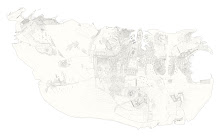I wrote a letter to a friend after finding out that my Great Grandfather's house in Zejtun, was to be sold. The house was so full of childhood memories that I felt desperate at the thought of never being able to revisit it, so in the letter I wrote everything I could remember - I was afraid that without the house to remind me, I would forget.
On my next visit to Malta I was able to visit the house one last time as it hadn't been sold yet. But everything had been auctioned off and the remaining unwanted items sat in the middle of large empty rooms. I looked all over, hoping to find something I would remember, wanting to give some last un-auctioned item a home, but nothing was familiar. It was strange to walk around this empty and unfamiliar place, it contrasted so much with what I'd described in my letter a few months earlier.
I took photographs. I was trying to record and preserve what was left. But they were photos of unrecognizable empty rooms. They only served as a record of what was not there anymore. Later I put the letter and the photos together, and a strange little book was born (Uncle Lino's House), some sort of attempt at bridging nostalgia and reality.
I took photographs. I was trying to record and preserve what was left. But they were photos of unrecognizable empty rooms. They only served as a record of what was not there anymore. Later I put the letter and the photos together, and a strange little book was born (Uncle Lino's House), some sort of attempt at bridging nostalgia and reality.

















